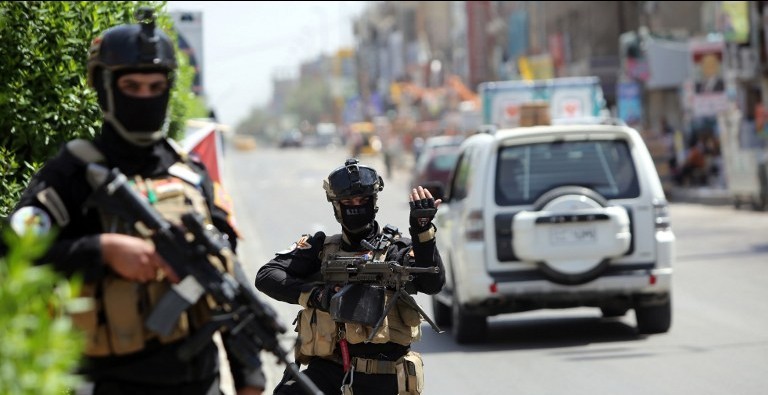2019: “Wow, what a year I was! Y’all will never see the likes of me again. Twelve months of impulsive Trump tweets, GOP campaign aides going to prison, the Ukraine brouhaha blowing up, wacky Rudy going nuts on television, wild hearings in the House of Representatives, and finally, impeachment! Boom! Top that!”
2020: “Here, hold my beer. How about war in the Middle East, as a starter?”
Ah, the Middle East, home to so many great American foreign policy decisions. Remember those weapons of mass destruction that were hidden all over Iraq in 2003? The ones that the Bush administration (Rumsfeld, Cheney, Powell, et al.) used as “evidence” to start a war that got 4,400 Americans killed and 31,000 wounded in action; the war that also resulted in an estimated 500,000 or so Iraqi deaths?

Turned out, of course, that there weren’t actually any weapons of mass destruction to speak of. Oops. Sorry, dead people. But at least the Bushies had to go through the process of trying to convince Congress that a dire threat existed before launching missiles and a subsequent invasion.
With the Trump administration, such Constitutional niceties are being ignored. Trust us, they say. We knew about some nasty plots to kill Americans that were about to be carried out by Iranian General Qassem Soleimani, so we assassinated his ass at the Baghdad airport. Ironically, the evidence — which we’ll probably never see — was provided by the same “deep-state” intelligence agencies that have been demonized for months by the president and his supporters. Guess they cleaned up their act.
In lieu of consulting with Congress or even the Gang of Eight, the president let a few friends at Mar-a-Lago in on the news in advance, so they could adjust their stock portfolios, plus Senator Lindsey Graham, Mitch McConnell, his children, Vladimir Putin, and others in his inner circle. After the strike, the president tweeted a message to Congress that he stated would “serve as notification” of his right to do whatever he wanted in the Middle East. Trump followed that with a tweeted threat to Iranian leaders that the U.S. had a list of 52 “cultural sites” that would be targeted if the Iranians dared to respond. Sure, that’s a war crime, but so what? The president then, literally, returned to the golf course and continued to tweet, presumably between shots.
On Tuesday, Secretary of Defense Mark Esper told the media that the Pentagon would not target cultural sites, despite the president’s continued insistence — live and via tweet — that we would.
All this caused me to wonder what would happen if for some reason Twitter went out of business. How would the president communicate with Congress or the American people or foreign friends and adversaries? Facebook? Instagram? Tik-Tok? The importance of Trump’s favorite social media platform will be a subject future historians will be mulling over for years, I suspect. But I digress.
So, here we are, seven days into the new year, the new decade, on the brink of conflict in the world’s most volatile region — home to Israel, Syria, Saudi Arabia, Turkey, Yemen, Iraq, and Iran. Oh, and Afghanistan, just on the other side of Iran, lest we forget. What a complex stewpot of hideous outcomes could be concocted within the confines of this tortured hunk of planetary real estate.
Does anyone think there’s a plan or a strategy here? Does anyone have confidence that this president would shrink from using nuclear weapons if Iran responds in a way that threatens his fragile ego? More important, does anyone have confidence that anyone around this president would or could stop him? It’s a “no” from me, on all counts. A Republican congressman told CNN on background this week that when Trump gets ready to act, “You can’t out-escalate him.” How reassuring.
2020 is upping the ante.


